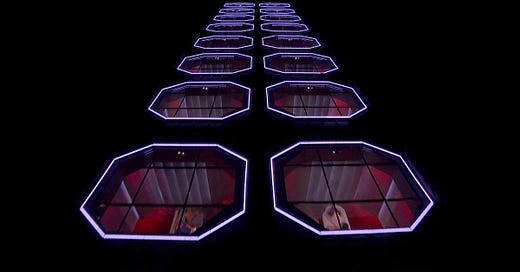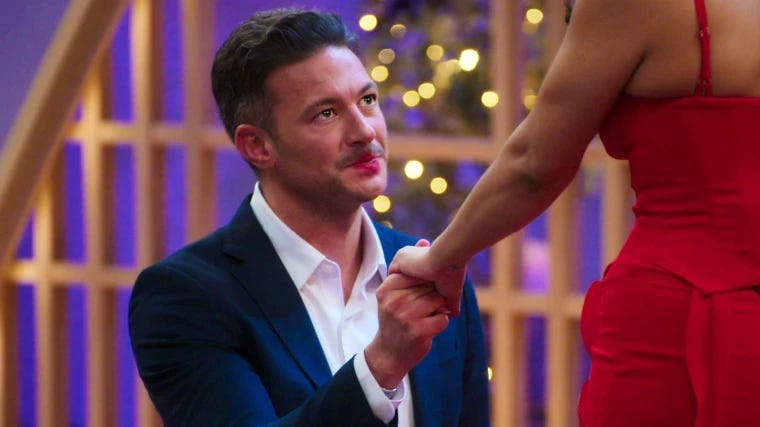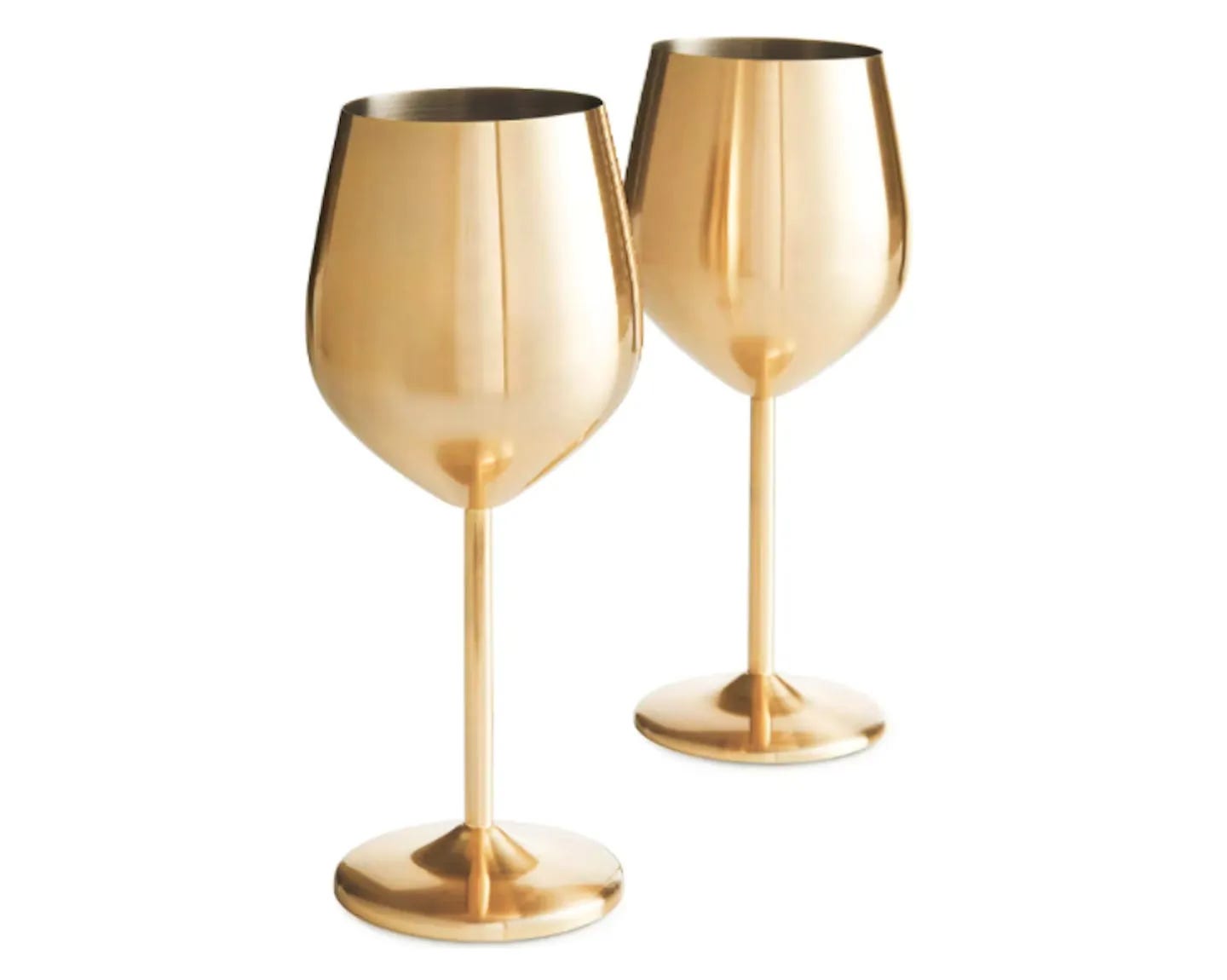I believe watching bubblegum TV is healthy but in small doses. It’s like a cleanser for the brain. It can soothe, heal and reset your cells after a long working week (or in my case, leaving everything to the last minute and squishing it all into an intense 24-hour sprint).
After such periods, I occasionally (and desperately) need to tune out and watch reality TV. Anything with lots of white teeth, diary room setups, and shiny hair. Shiny things, in general. Ridiculous amounts of wealth: optional. Hooked to my veins: preferable. Anything removed from Google Word Docs and the 1.2 million tabs open on my laptop, basically.
I remember watching seasons 1 and 2 of The Kardashians (not to be confused with the Keeping Up With iteration) after an intense deadline-y period. I also happened to be on my period and had to lie horizontally for a few hours.
Watching The Kardashians was a perfect binge of baby pink bubblegum, an indulgent marathon of reality TV nothingness. Everything my brain needed after a load of poorly managed timekeeping and too much caffeine.
I loved how the Kardashian sisters spoke so slowly, with just a bearable amount of vocal fry. The soft focus and halo lighting on their alarmingly symmetrical faces added to the unrealistic quality of this reality TV show. Also, the ambling pace of each episode suited my mental and physical state at the time.
The Kardashians was easy to watch without getting too invested, in the long term, at least. Considering I watched two seasons in two days, though, I actually was quite invested, but it was short-lived, and that’s one of the many benefits of bubblegum TV; it’s something you can tap into, become briefly immersed, and hopefully never watch for months, years, or maybe ever again. The bubblegum will have served its cleansing purposes.
I thought Love Is Blind UK would be the same bubblegummy experience. Despite the multiple episodes encompassing Love Is Blind US, Sweden, Mexico and South Africa entrenched in Netflix’s back catalogue, I had never watched the show. And because I’m sceptical of almost everything on Netflix, I categorised all versions of Love Is Blind under the imaginary ‘Will Never Watch’ section of my account.
My sister recommended Love is Blind UK. “At least watch the first episode, it’s actually really good,” she told me over WhatsApp.
“Yeah I will,” I wrote back, knowing well I had no intention of doing so. “I actually will.”
However, the need for a significant dose of bubblegum came soon after that message. And there was Love is Blind UK, ready and waiting, all 11 episodes. ‘The Reunion’ episode wasn’t out yet, where the cast (we’ll call them the ‘cast’ even though they could also be classed as ‘experimentalists’) reunites after one year for our viewing entertainment.
A quick synopsis for those uninitiated to the world of Love Is Blind, via Wikipedia: “The show promotes itself as a social experiment where single men and women look for love and get engaged, all before meeting in person.”
I’ll fill in the rest of the crucial blanks:
A bunch of single men and women go on dates in ‘pods’, where a James Turrell-esque wall blocks them from seeing one another, so they can only hear each other.
If a person has a “special connection” with their date, we’ll see more episodes of such connections blossoming until someone, usually the man, gets down on one knee and proposes (still behind the wall).
The rest of the show shares the love stories of six engaged couples in total, with the remaining 18 cast members ejected elsewhere i.e. obscurity, never to be seen or heard from again (although a few return later in the ‘Guess Who’s Back’ episode to spice things up).
Then it’s THE BIG REVEAL. The main question/worry each cast member tends to have is: “What if my fiancé/fiancée isn’t physically attracted to me?” This bit is actually quite nerve-wracking for both cast member and viewer.
Following THE BIG REVEAL, the six couples are whisked off to Corfu for ten days for a “couples retreat.” Lots of petty arguments ensue.
Then they’re whisked back to London, where the show puts each couple up in their own new-build apartment; the kind of place that would send a Foxton’s estate agent into a tail-spin, with its canal-side views, smart decor, all the latest mod cons, and just a stone’s throw away from the hip n’ trendy Camden Town.
The couples meet one another’s friends and family along the way. Some encounters are painfully awkward (all the more for our viewing entertainment) but it’s usually because said friend and/or family member is not used to having a whole camera crew filming a conversation at the kitchen table (CC: Tom’s sisters meeting Maria for the first time).
AND THEN, there’s the Wedding Day. And only then, just when the couple are about to exchange vows, can either the bride or groom say “I do” or “I do not”. If it’s the former, the couple must sign a legally binding contract (this show ain’t no joke). In some dire cases, the bride rejects the eager groom, or vice versa (CC: Cat and Freddie), resulting in a sensational jilting at the altar scenario (or at least the producers make it out to be).
Then there’s ‘The Reunion’, filmed one year after the show, where we see who’s divorced, who’s still together, and who’s doing this whole thing for brand deals (I suspect Jasmine and Bobby, as per their YouTube channel Jamming With The Johnsons—I’m sorry, but I just don’t trust couples with Youtube channels).
So overall, highly dramatic, highly emotional. Bubblegum TV this is not.
Love Is Blind UK is a stressful, anxious, exhausting watch, but it is extremely addictive and addictive ‘til the bitter end.
I lost sleep over this show. The garish colours, harsh lighting, and insanely bright aesthetic of the series stuck under my eyelids all night. I also worried about Sabrina and whether her Steven was the real deal. I questioned Ollie—he of the Wandering Eye—and his motives with Demi. I doubted Cat and Freddie’s connection, considering they seemed to be on “completely different pages”, as Freddie’s sister Betsy-Dora accurately surmised.
Amongst all the drama, the most memorable part of Love Is Blind UK, for me, was the reoccurrence of gold goblets at the most pivotal points of the show.
In every laugh shared, every loving smile, every tender embrace, every tear shed, there were the goblets, again and again.
Yes, there they were, two pristine goblets strategically placed behind Freddie’s head as he sat talking to Cat’s parents, post-jilting, in the drawing room of the posh castle slash wedding venue.
And oh look, there they are again, just about visible in the back room of The Prince pub in London, as Benaiah leans over a jukebox and has a small cry after his spat with Sam in the smoking area.
And of course, in every scene, whether filmed in the pods, the villas in Corfu, the apartments in Camden, or the weddings in the castle, the gold goblets presided over everything, watching every move intently like Big Brother in George Orwell’s 1984, or indeed, Big Brother on Channel 4.
What did these goblets mean? What’s inside each goblet? Are they symbolic of a cult, like L. Ron Hubbard’s science-fiction novels or the Masonic handshake of the Freemasons?
Watching Love Is Blind UK was self-destructive and took up a lot more brain space than I want to admit. I suffered mild withdrawals after flying through all 11 episodes. I slowly morphed back to normal after a week, only to be sucked in again by ‘The Reunion’, which I watched, and experienced anxiety, rage, sadness, suspicion and energy depletion all over again.
There’s another series coming, according to Matt and Emma Willis. But I’m not watching it. I’m never watching this show again.
Realistically, I probably will though.









